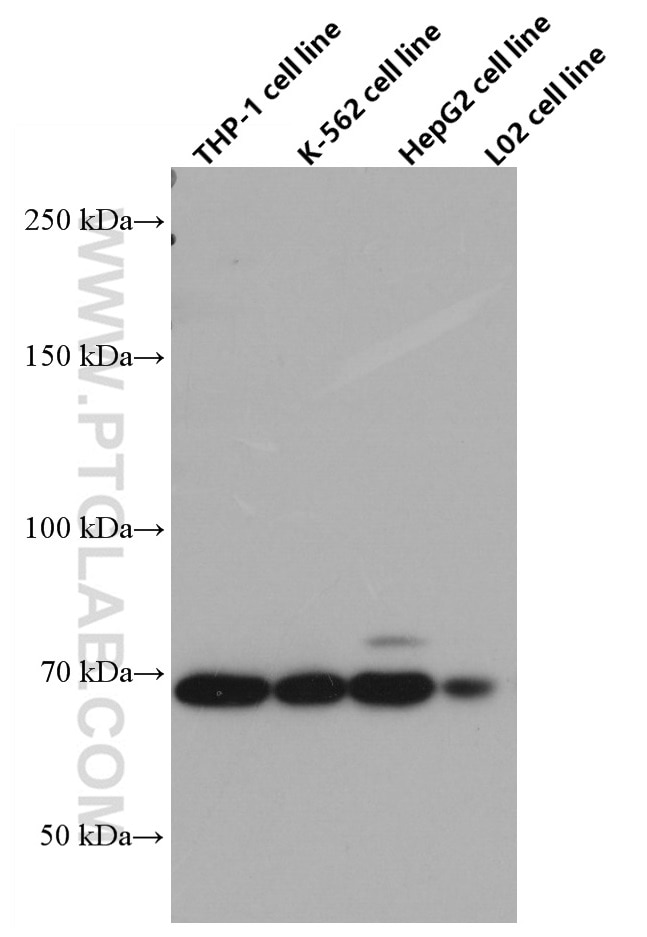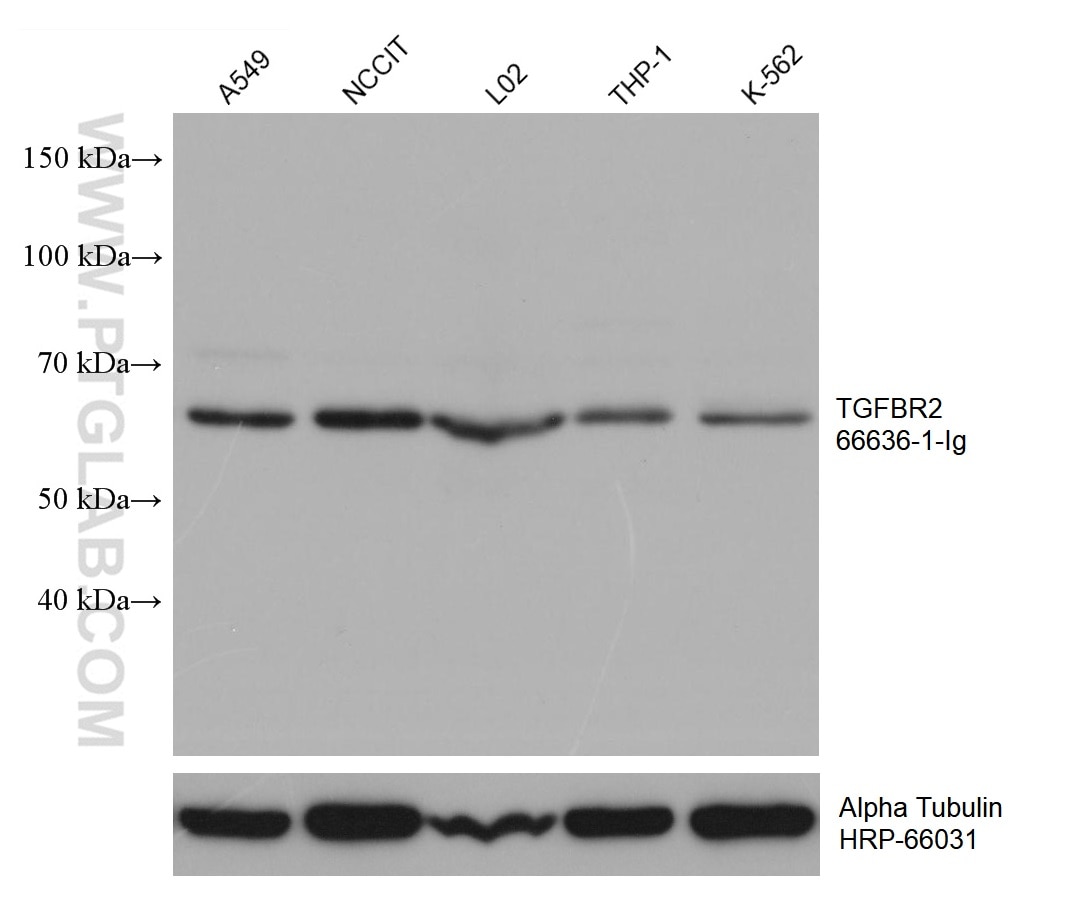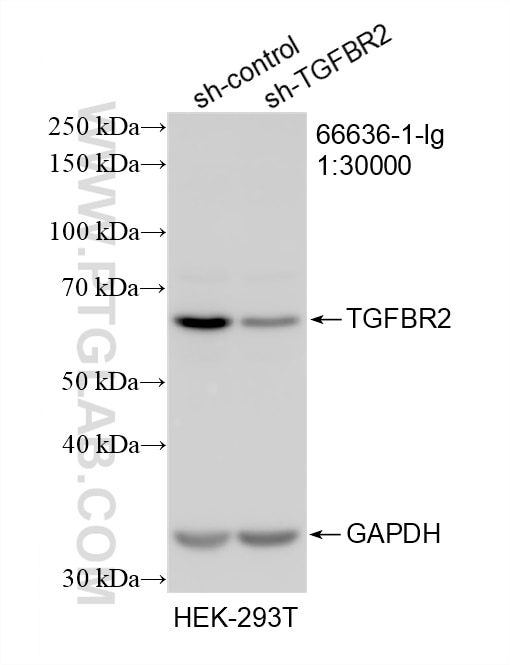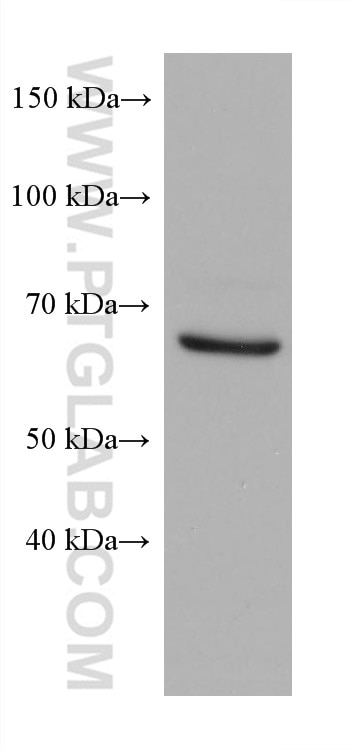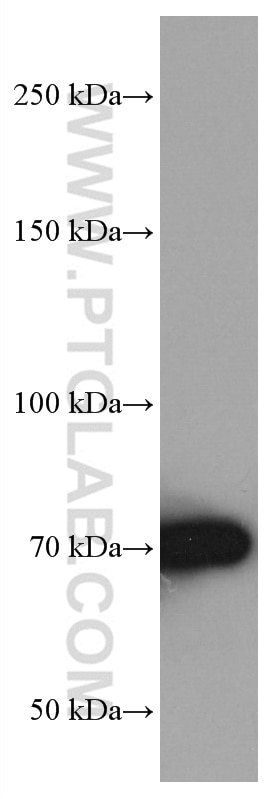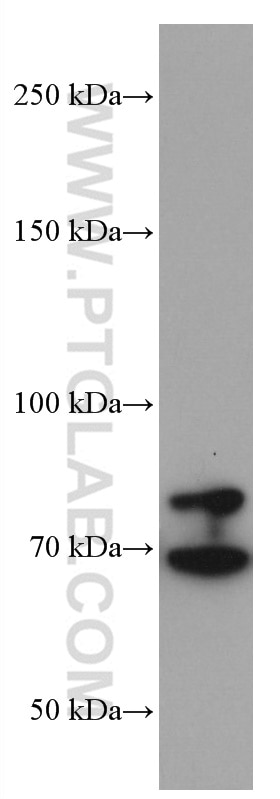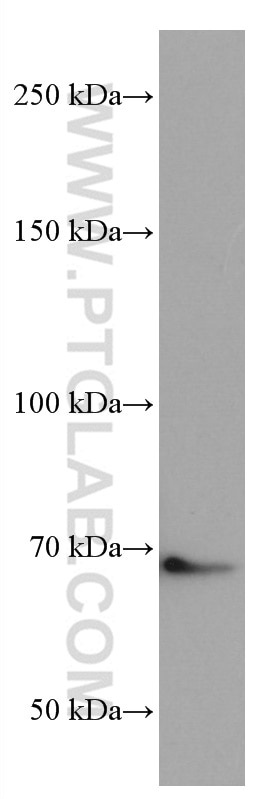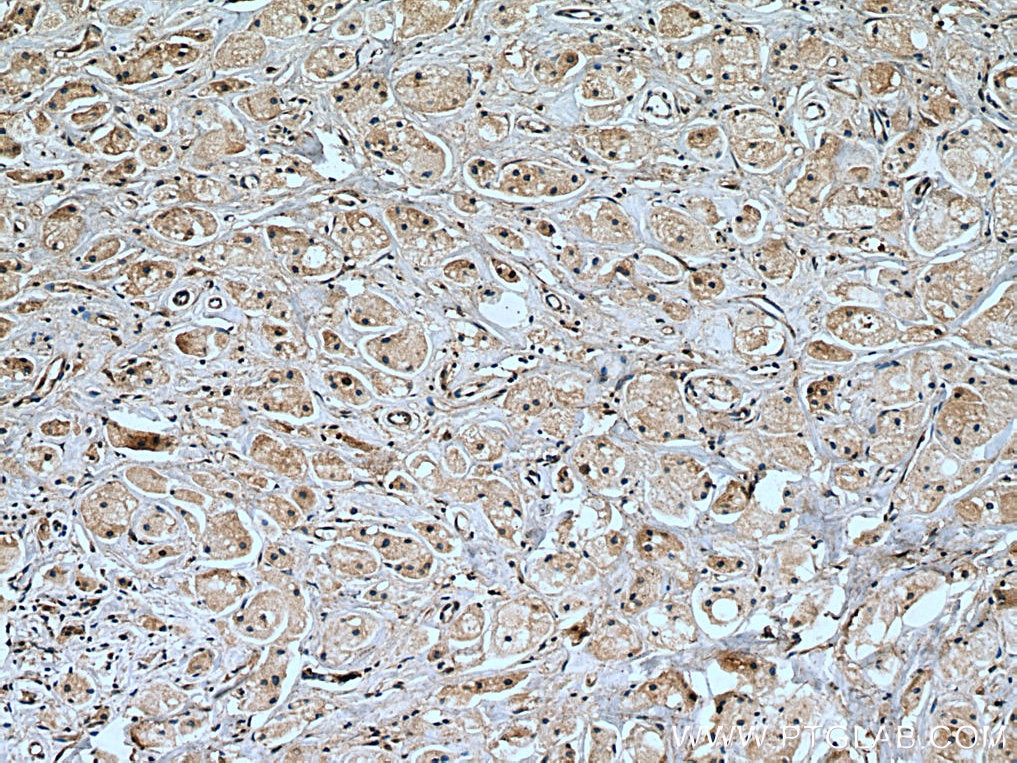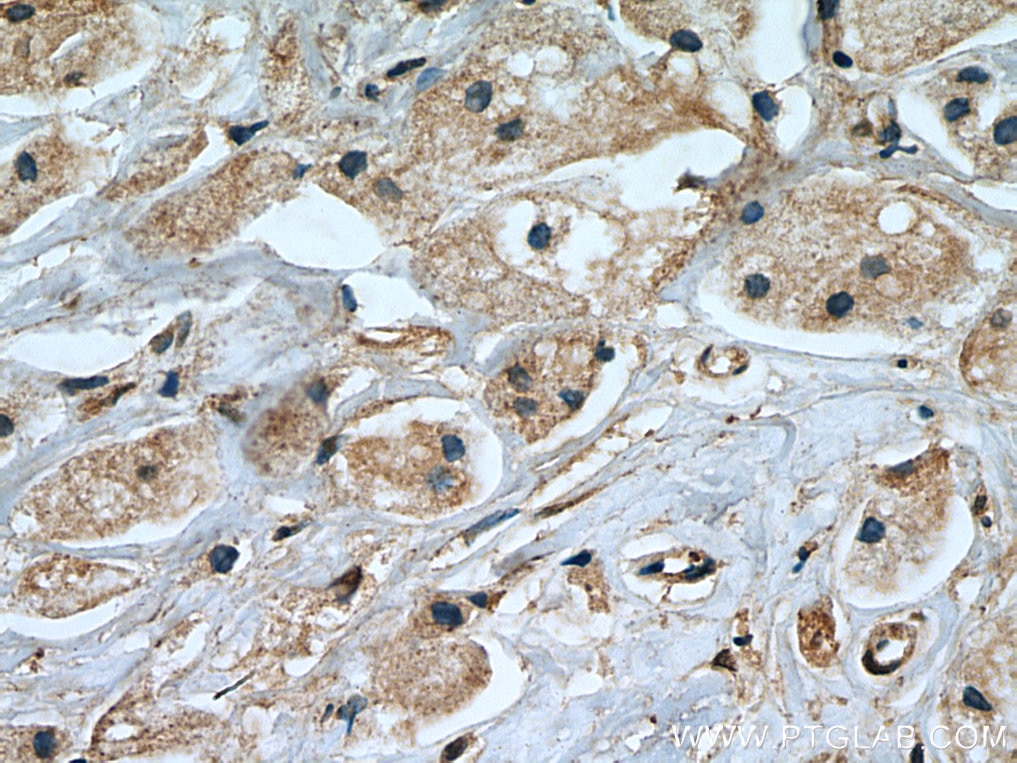Tested Applications
| Positive WB detected in | A549 cells, HEK-293T cells, U2OS cells, THP-1 cells, HSC-T6 cells, NIH/3T3 cells, NCCIT cells, L02 cells, K-562 cells, HepG2 cells |
| Positive IHC detected in | human breast cancer tissue Note: suggested antigen retrieval with TE buffer pH 9.0; (*) Alternatively, antigen retrieval may be performed with citrate buffer pH 6.0 |
Recommended dilution
| Application | Dilution |
|---|---|
| Western Blot (WB) | WB : 1:5000-1:20000 |
| Immunohistochemistry (IHC) | IHC : 1:250-1:1000 |
| It is recommended that this reagent should be titrated in each testing system to obtain optimal results. | |
| Sample-dependent, Check data in validation data gallery. | |
Published Applications
| KD/KO | See 3 publications below |
| WB | See 40 publications below |
| IHC | See 5 publications below |
| IF | See 8 publications below |
| IP | See 2 publications below |
| CoIP | See 2 publications below |
Product Information
66636-1-Ig targets TGFBR2 in WB, IHC, IF, IP, CoIP, ELISA applications and shows reactivity with Human, Mouse , Rat samples.
| Tested Reactivity | Human, Mouse , Rat |
| Cited Reactivity | human, mouse, rat, goat |
| Host / Isotype | Mouse / IgG1 |
| Class | Monoclonal |
| Type | Antibody |
| Immunogen | TGFBR2 fusion protein Ag25773 Predict reactive species |
| Full Name | transforming growth factor, beta receptor II (70/80kDa) |
| Calculated Molecular Weight | 65 kDa |
| Observed Molecular Weight | 65-80 kDa |
| GenBank Accession Number | BC040499 |
| Gene Symbol | TGFBR2 |
| Gene ID (NCBI) | 7048 |
| RRID | AB_2881995 |
| Conjugate | Unconjugated |
| Form | Liquid |
| Purification Method | Protein A purification |
| UNIPROT ID | P37173 |
| Storage Buffer | PBS with 0.02% sodium azide and 50% glycerol , pH 7.3 |
| Storage Conditions | Store at -20°C. Stable for one year after shipment. Aliquoting is unnecessary for -20oC storage. 20ul sizes contain 0.1% BSA. |
Background Information
TGF beta Receptor II (TGFBR2) is a member of the transforming growth factor-β (TGF-β) superfamily, which are critical regulators of cell proliferation and differentiation, developmental patterning and morphogenesis, and disease pathogenesis (PMID: 10974075). TGFBR2 result in both SMAD4-dependent constraint of proliferation and SMAD4-independent activation of apoptosis (PMID: 29396446). It has some isoforms with the molecular weight of 70-80 kDa and ~90 kDa after glycosylated.
Protocols
| Product Specific Protocols | |
|---|---|
| WB protocol for TGFBR2 antibody 66636-1-Ig | Download protocol |
| IHC protocol for TGFBR2 antibody 66636-1-Ig | Download protocol |
| Standard Protocols | |
|---|---|
| Click here to view our Standard Protocols |
Publications
| Species | Application | Title |
|---|---|---|
Cell Rep Med Engineering irradiated tumor-derived microparticles as personalized vaccines to enhance anti-tumor immunity | ||
Dev Cell DYRK1A-TGF-β signaling axis determines sensitivity to OXPHOS inhibition in hepatocellular carcinoma
| ||
Mol Ther Nucleic Acids Exploring the therapeutic potential of sγPNA-141: Pharmacodynamics and mechanistic insights during ischemic stroke recovery | ||
Acta Pharmacol Sin GPR97 deficiency ameliorates renal interstitial fibrosis in mouse hypertensive nephropathy | ||
Br J Pharmacol Inhibition of HSP90 S-nitrosylation Alleviates Cardiac Fibrosis via TGFβ/SMAD3 Signaling Pathway. | ||
NPJ Regen Med Alkaline shear-thinning micro-nanocomposite hydrogels initiate endogenous TGFβ signaling for in situ bone regeneration |
Reviews
The reviews below have been submitted by verified Proteintech customers who received an incentive for providing their feedback.
FH Kenzo (Verified Customer) (08-15-2023) | This antibody worked well for labeling TGF beta receptor type 2 in mouse kidney. We were able to acquire robust immunofluorescence signals with this KO validated antibody.
|
